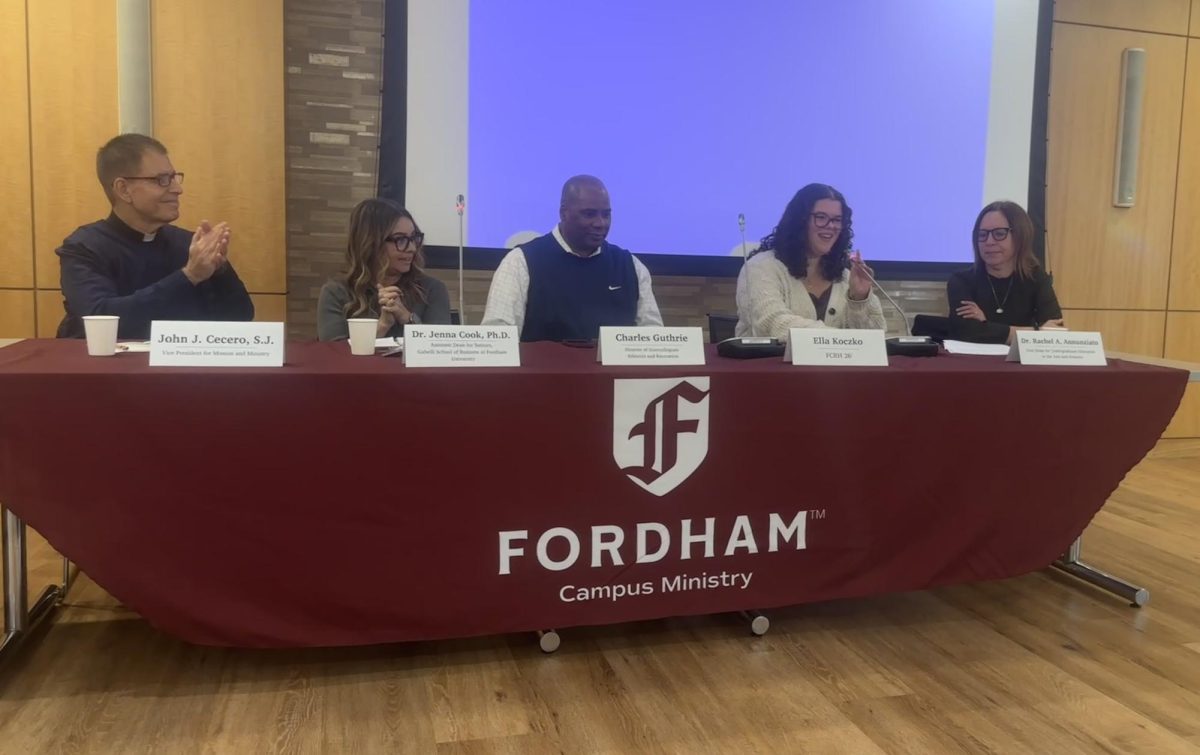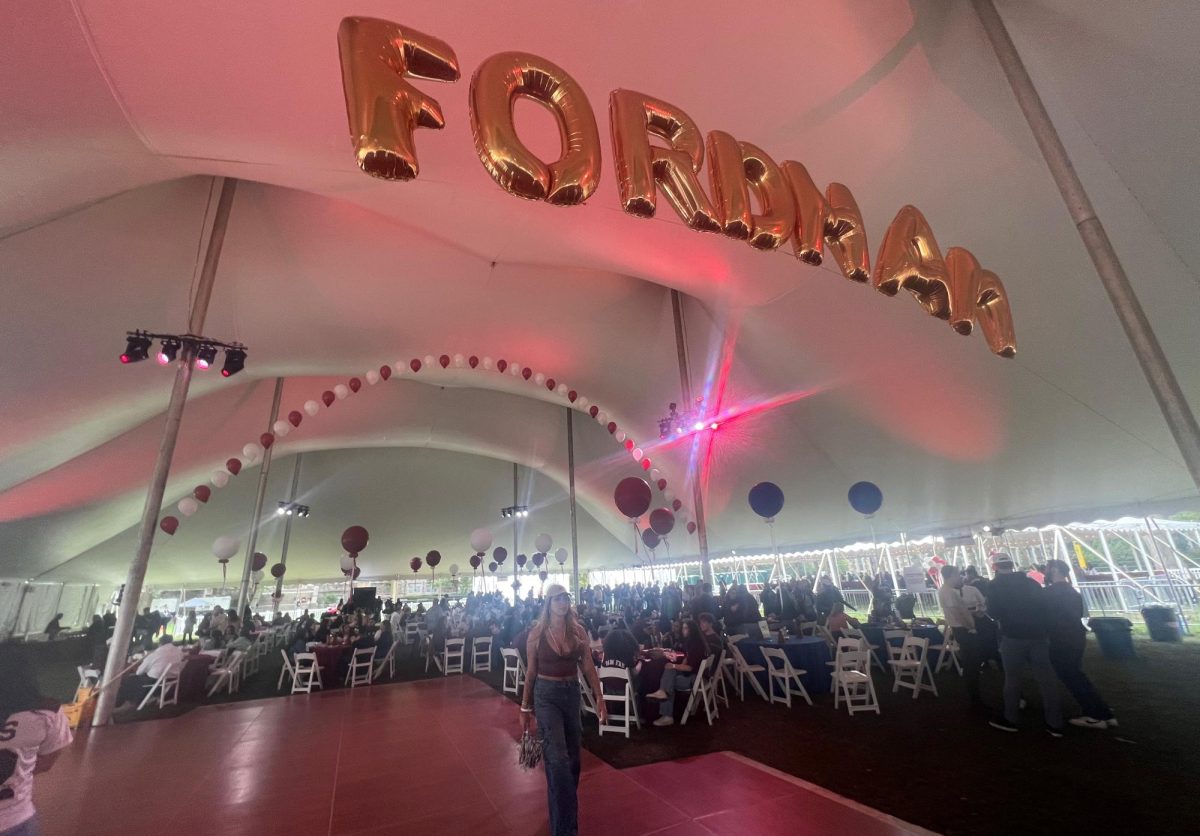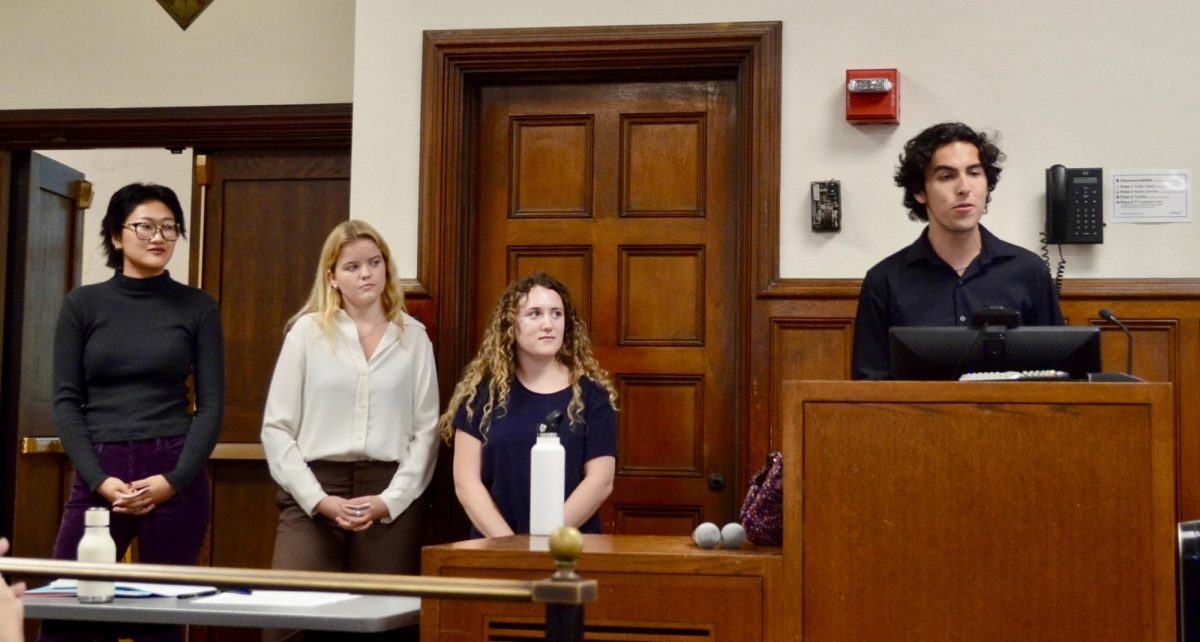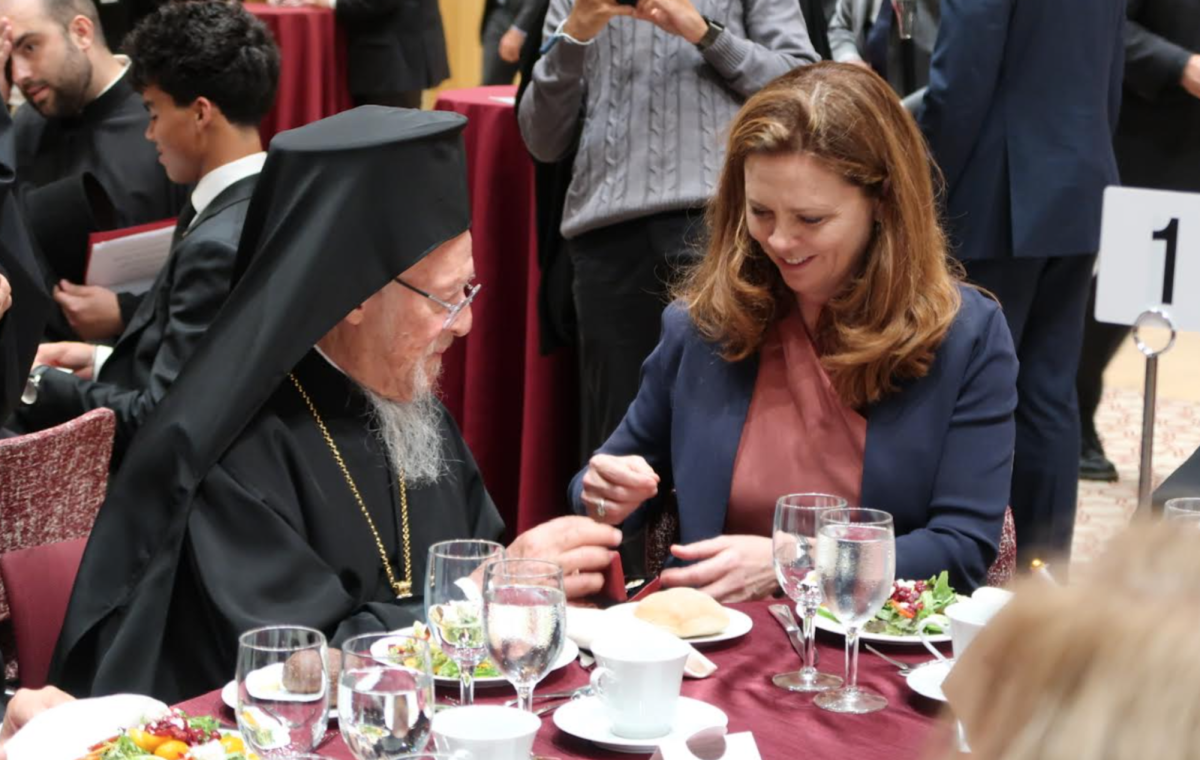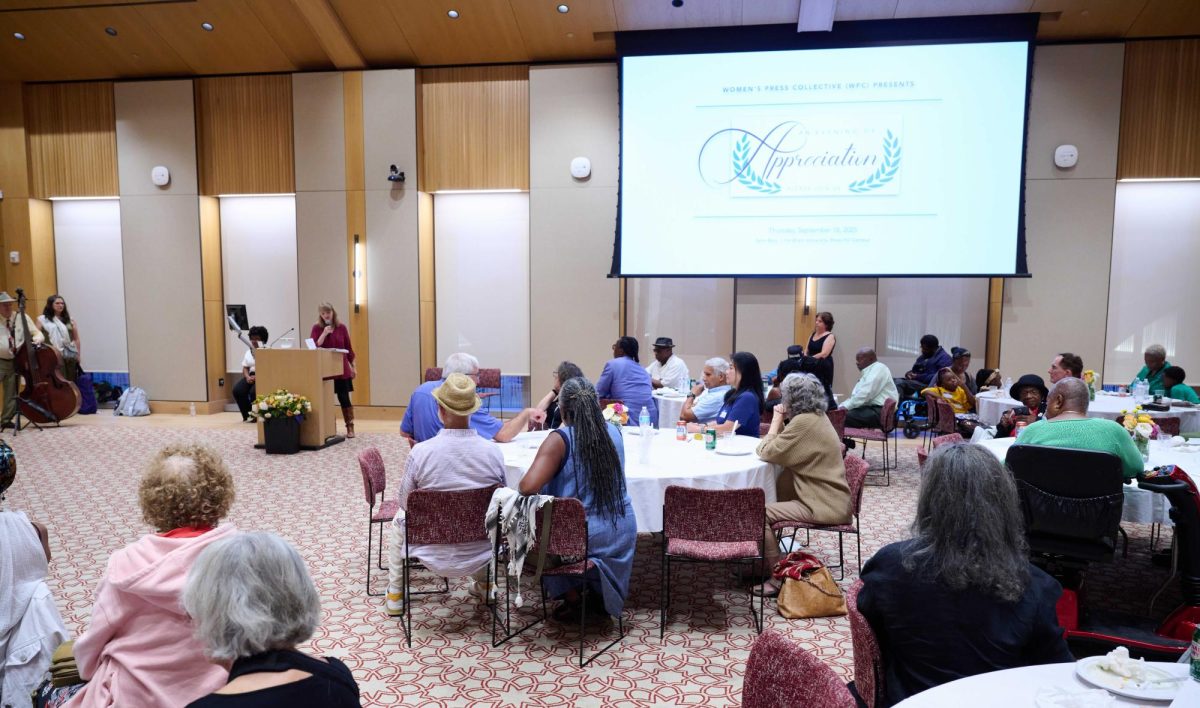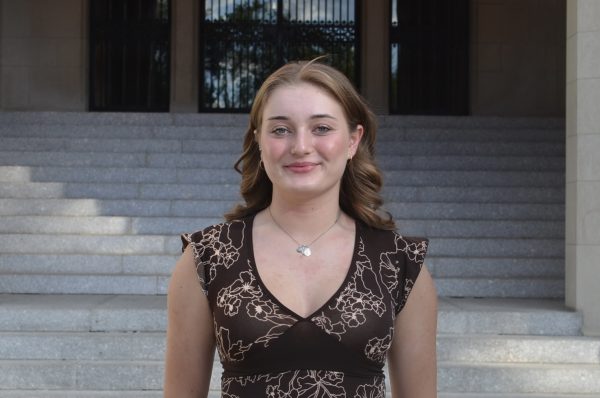Fordham University’s Campus Ministry hosted its fourth annual “Living The Mission” panel on Wednesday, Oct. 1.
The panel was moderated by Vice President for Mission Integration and Ministry John J. Cecero, S.J., with speeches from special guests, including Jenna Cook, Ph.D., assistant dean for Seniors at the Gabelli School of Business, Charles Guthrie, director of Intercollegiate Athletics and Recreation, Ella Koczko, FCRH ’26 and Rachel Annunziato, Ph.D., vice dean for Undergraduate Education in the Arts and Sciences.
To begin the event, several students under Fordham’s chapter of Alpha Sigma Nu were asked to present the speakers and start the panel presentation with a prayer.
Annunziato presented first, sharing how Fordham’s mission is incorporated into her experience as a member of both the faculty and the Fordham administration. Annunziato is trained in health clinical psychology and teaches numerous classes under the psychology department. She attributed her teaching choices to Fordham’s mission and shared gratitude for the Fordham student body for valuing the mission as well.
Annunziato shared that her love of teaching, at Fordham specifically, comes from her colleagues and the student body. “I just don’t think you’ll find better colleagues and students, and they’re drawn here because of our mission,” she said.
Annunziato also noted the importance of mission-based work in her life prior to Fordham, and how it continues to influence her life and duties within her role at the university. “I realized how much my gravitation to mission-based work brought me down this path initially as a psychologist, and now I find myself trying to translate this work into the lives of hundreds of students who have enriched mine so profoundly,” she said.
To wrap up her speech, Annunziato outlined her future goals. “I hope that as a dean and a teacher, I can continue to be centered by mission and thereby practicing with the spirit of community and sense of purpose always on my mind,” she said.
Following Annunziato was Koczko’s presentation, a reflection of how mission affects her life as a senior at Fordham College at Rose Hill. Koczko shared how she has always been service-oriented, even before attending Fordham. Despite not intending to attend a religiously affiliated school, Koczko ended up attending Fordham due to its mission.
“I always kind of found a disconnect between my education and faith in my service, and I think Fordham definitely has worked really hard to instill that interconnectedness within it,” she said. “Something that has really kind of hit a cord with me is the way that Fordham emphasizes that we’re not working for the community, but in our community.”
Guthrie shared next, specifically highlighting his upbringing in the church — his dad was a preacher and pastor — and noted that he feels his background in the church played a significant role in his present role at Fordham. He said he uses the mission to guide him in his position as athletic director.
“When I think about the mission, there’s a part in there about wisdom and having empathy and moral obligation,” Guthrie said. “You have to go in with the mentality that you’re serving others, making our student athletes and our club sports and our intercollegiate participants, men and women, for each other, for the world, for the greater good.”
Guthrie also emphasized the importance of being there for student-athletes, not just for what they can provide the school, but for who they are as individuals.
“What I’ve learned through this leadership role, and my mission, is to grow my relationship with our student athletes [to be] more meaningful than just transactional, and get to know them,” he said.
Similar to Annunziato, Guthrie concluded his statement with a question for the future that he ensures to consider while fulfilling his role.
“When I think about our student athletes, they’re focusing on tomorrow, what are we doing in athletics to prepare our student athletes for tomorrow?” he said.
The last panelist to speak was Cook. She began her discussion of how Fordham’s mission impacts her and her role on campus with personal history. Cook was raised by a single mother, who was Christian but wanted Cook to be able to decide her own religious path. When she was applying for jobs following her previous school closing, she researched the Jesuits. Cook shared that she realized she had more in common with them than she thought, due to the mission and purpose-driven life they promote.
“When I looked at the elements of Jesuit education, cura personalis really stuck out to me; caring for the whole person,” she said.
Cook continued her speech by sharing how the mission integrates into her life as dean of the Gabelli School of Business. She shared about conversations she has had with others about the ability to do good business, and make a difference through business, and how that translates into her role.
“I always tell students, ‘For us, it’s not good enough for you to just be good at business, because anyone can be really good at business,” Cook said. “It’s important for you to be a good person who is good at business, and cares about other people, and cares about sustainability and the environment, and so many other facets of what makes a Jesuit Institution, a Jesuit Institution.”
Cook finished her presentation by reflecting on Fordham’s mission holistically. “Mission-based living; it is living with some sort of purpose, and it’s something greater than yourself,” she said. “I feel really, really blessed to be able to work in a committed community.”





































































































































































































